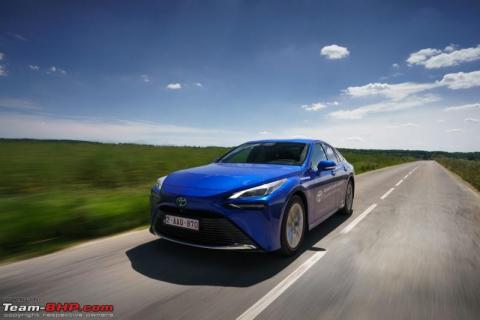The auto giant is also looking at non-automotive applications for the new-gen cells like the construction and medical industries.
During the Tokyo Motor Show, Hiroki Nakajima, Technical Chief, Toyota Motors, confirmed that the automaker will change its approach with its FCEV tech now concentrated towards commercial vehicles.
Toyota was a pioneer of the FCEV technology which it offered on its Mirai. However, due to the complexity of setting up a hydrogen fuelling station network, the car didn’t get a lot of takers. Nakajima also stated, “We have tried Mirai but not been successful.” He added, “Hydrogen stations are very few and difficult to realise, so Mirai is smaller [in volume].”
Having said that, Toyota feels the technology is far more suitable for commercial vehicles. Also, for CVs setting up a controlled fuelling network is easier as its only A-to-B journeys. Nakajima stated, “Huge numbers of trucks go from A-to-B so you can operate stations with more stability. Commercial vehicles are the most important area to try and proceed on with hydrogen.”
Toyota is currently developing a new-generation fuel cell. The latest-gen fuel cell tech is expected to cost half of the current generation cells, while also being two and half times more durable than diesel engines. While Toyota is developing the new-gen fuel cells with commercial vehicles in mind, they want to keep the tech open to cars as well. The auto giant is also looking at non-automotive applications for the new-gen cells like the construction and medical industries.
Toyota is also developing solid-state battery tech for its future passenger vehicles. The new tech is scheduled to launch sometime in 2027 or 2028.
Source: Read Full Article
